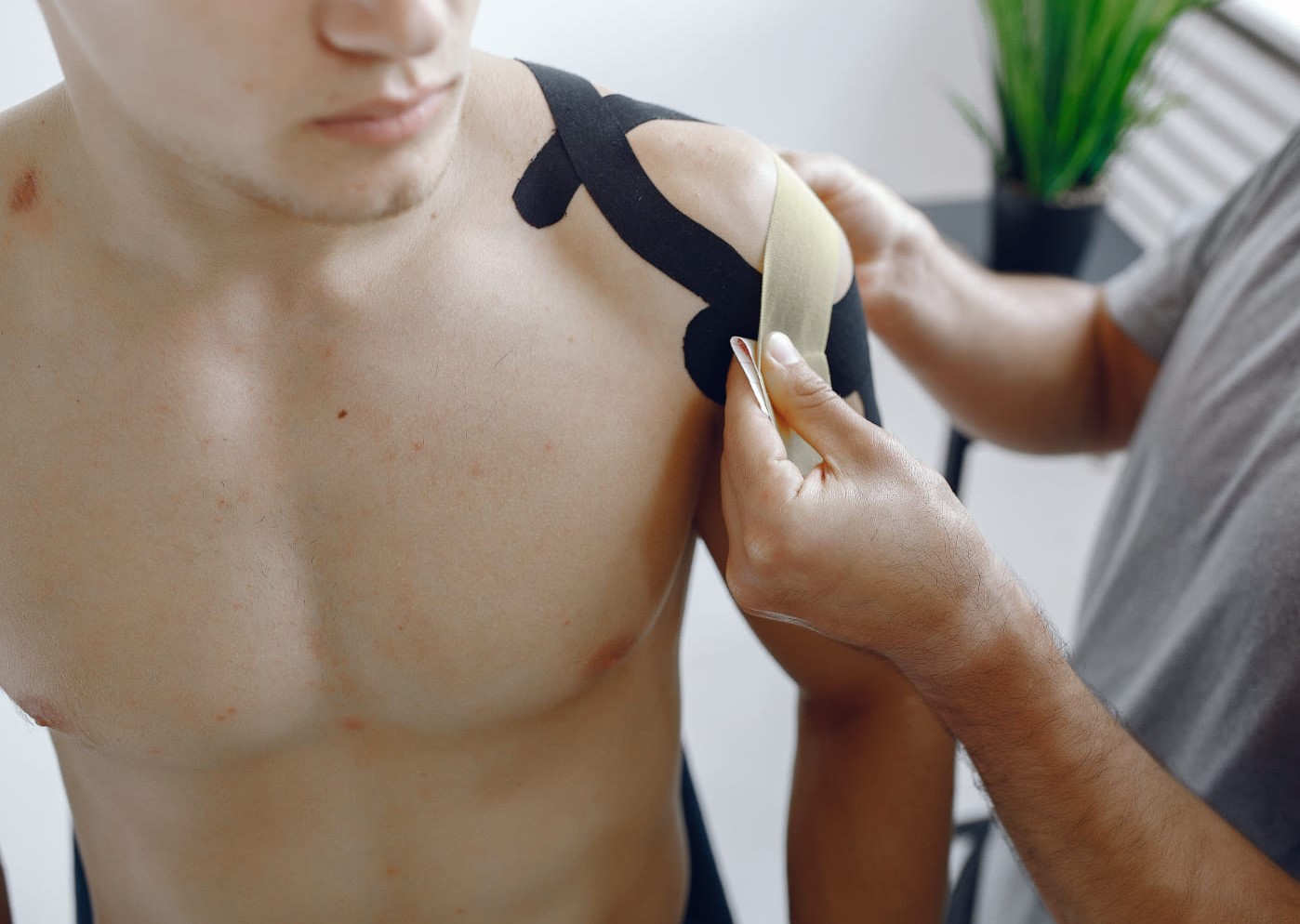Shoulder Dislocation Specialist In Singapore

Dr Wang Lushun
Senior Consultant Orthopaedic Surgeon
MBBS (Singapore)
MRCS (Edin)
MMed (Ortho)
FRCS (Ortho) (Edin)
- Reclaim your shoulder’s overall function through shoulder dislocation treatment
- Fellowship-trained orthopedic surgeon
- Internationally recognised, more than 1500 surgeries performed



What is Shoulder Dislocation Treatment?
Shoulder dislocation treatment is a medical procedure tailored for patients who’ve experienced a shoulder dislocation or instability. It’s suitable for individuals suffering from chronic dislocations, recurring pain, or limited movement due to a dislocated shoulder and provides benefits, such as:
- Restored confidence in daily activities
- Alleviated pain and discomfort
- Reduced risk of future dislocations
- Enhanced overall shoulder health
Signs You Need to Undergo Shoulder Dislocation Treatment
If you're unsure whether you need shoulder dislocation treatment in Singapore, consult your orthopaedic specialist if you’re experiencing any of these symptoms:
Frequent dislocations
Experiencing frequent dislocations may indicate that your shoulder joint isn't stable, making you prone to further injuries.
Persistent pain or discomfort
Chronic pain in the shoulder area may signal underlying issues, such as damaged tendons or ligaments.
Limited range of motion
If you can't move your shoulder freely or you're avoiding certain movements due to pain, it's time to seek professional help.
Swelling or bruising
These symptoms could be a sign of a shoulder injury that hasn't healed properly, and treatment is necessary to prevent further damage.
Embrace a more mobile, pain-free life.
Start your shoulder dislocation treatment journey.
Start your shoulder dislocation treatment journey.
Strengthen your shoulder and get pain relief while preventing further injury and lasting complications.
Shoulder dislocation treatment can help you end the cycle of recurring dislocations and get you
back on track to doing the things you love.


Am I A Candidate for Shoulder Dislocation Treatment?
Consult with your orthopaedic specialist
who’ll assess your condition and recommend the most suitable treatment based on the following factors:
- Severity of the injury: The extent of damage to your shoulder joint, muscles, and ligaments plays a significant role in deciding if you require treatment and the type of treatment needed.
- Previous dislocations: If you’ve experienced multiple dislocations, you may need treatment to prevent further instability and damage to the shoulder joint.
- Age and activity level: Younger, more active individuals may benefit from treatment to help maintain their desired level of physical activity and reduce the risk of future dislocations.
When Is The Best Time To Have Shoulder Dislocation Treatment?
Seek medical attention as soon as possible after a dislocation occurs, as immediate treatment can prevent further damage and complications. If you're experiencing chronic shoulder instability or recurring dislocations, consult an orthopaedic specialist to assess your condition and determine the most appropriate course of action.
What causes a shoulder dislocation?
A shoulder dislocation occurs when the upper arm bone (humerus) is forced out of the shoulder socket (glenoid). This can be caused by a sudden impact, such as a fall or sports injury, or by the repetitive strain on the shoulder joint from activities like weightlifting or throwing sports.
Can a dislocated shoulder heal on its own?
A dislocated shoulder cannot heal on its own and requires medical intervention to be properly relocated. Attempting to self-treat a dislocation can lead to further damage and complications, so it’s crucial to seek professional help.
Shoulder Dislocation Treatment Recovery Process
| Recovery Period | What to Expect: |
|---|---|
| Immediately after surgery (Day 1-3): |
|
| First few weeks after surgery (Week 0-3): |
|
| Several weeks after surgery (Week 3-6): |
|
| More than a month after surgery (6 weeks onwards): |
|


Dr Wang Lushun
Senior Consultant Orthopaedic Surgeon
MBBS (Singapore)
MRCS (Edin)
MMed (Ortho)
FRCS (Ortho) (Edin)
Internationally Recognised & Double Fellowship-Trained Surgeon With Over 18 Years of Experience
- Bachelor of Medicine & Bachelor of Surgery (MBBS),
National University of Singapore - Member of The Royal College of Surgeons (MRCS),
Edinburgh, United Kingdom - Master of Medicine in Orthopaedic Surgery (MMed),
National University of Singapore - Fellow of The Royal College of Surgeons in Orthopaedics and Traumatology (FRCS), Edinburgh, United Kingdom
As a Senior Consultant Orthopaedic Surgeon and former Head of the Hip and Knee Division in Ng Teng Fong Hospital, he has won awards for superior patient outcomes (value driven), service quality and enhanced recovery programmes. His patients include current and former national athletes and sporting professionals.
Why Choose
Dr Wang Lushun?
Trusted
Leadership on Orthopaedic Advisory Boards
Skilful
Double Fellowships at Centres of Excellence
Experienced
Senior Consultant with Over 18 Years of Experience
Can I Use Medisave For Shoulder Dislocation Treatment?
Yes, you can use funds from your Medisave account for certain shoulder dislocation treatments.
Reach out to us today to learn more about payment options.
Patient-Centred Orthopaedic Care
We are dedicated to your recovery and well-being. Every patient deserves the freedom that comes with active living. Whether you're an athlete sidelined by an injury or a weekend hobbyist desperate to return to your passion, our mission is to help you regain your mobility and independence.
Personalised Approach For Positive Outcomes
Our clinic prioritizes time dedicated to understanding each patient’s injuries and needs. Dr Wang strongly believes that personalised care & patient management will lead to better outcomes & positive experiences.
Minimally Invasive Techniques For Faster Recovery
Dr Wang’s extensive experience with minimally invasive procedures allows for less scarring, lower risk of complications and faster recovery compared to traditional surgical methods.
Aftercare Focused On Restoring Mobility & Well-Being
As an avid sportsperson, Dr Wang understands the time and patience required to regain mobility and return to active living. After your procedure is completed, Dr Wang will make sure your recovery is smooth and comfortable.
Insurance
We accept all patients, with or without insurance plans. Additionally, we are on the specialist panels of these Health Networks/Insurance Plans. Please contact us if you have any queries and we will be happy to assist you in checking with your insurance provider.
Our Clinic Locations
3 Mount Elizabeth, #13-14
Mount Elizabeth Medical Centre
Singapore 228510
820 Thomson Road, Mount Alvernia Hospital, #05-51, Medical Centre D, Singapore 574623
Frequently Asked Questions
How long does it take to recover from a shoulder dislocation?
Recovery from a shoulder dislocation can take anywhere from a few weeks to several months, depending on the severity of the injury and the individual’s commitment to physical therapy. Proper rest, following the prescribed rehabilitation plan, and avoiding reinjury are critical for a successful recovery.
How can I prevent a shoulder dislocation?
Preventing shoulder dislocations involves maintaining good joint health through regular strength and flexibility exercises. Additionally, practising proper techniques and using protective equipment in sports, as well as being cautious during activities that put stress on the shoulder, can help reduce the risk of dislocation.
Is surgery necessary for a dislocated shoulder?
Surgery is not always necessary for a dislocated shoulder, but it may be recommended for young athletic individuals, in cases of recurrent dislocations, significant ligament or tendon damage, or if conservative treatments have proven ineffective.
How can I tell if my shoulder is dislocated or just sprained?
A dislocated shoulder typically presents with more severe pain, swelling, and visible deformity than a sprain. However, it can be difficult to self-diagnose, so it’s important to consult a medical professional for a proper evaluation and treatment plan.
Can a dislocated shoulder cause nerve damage?
Yes, a dislocated shoulder can cause nerve damage. The stretching or compression of nerves during dislocation can lead to temporary or, in rare cases, permanent nerve issues, such as numbness, tingling, or weakness in the arm.